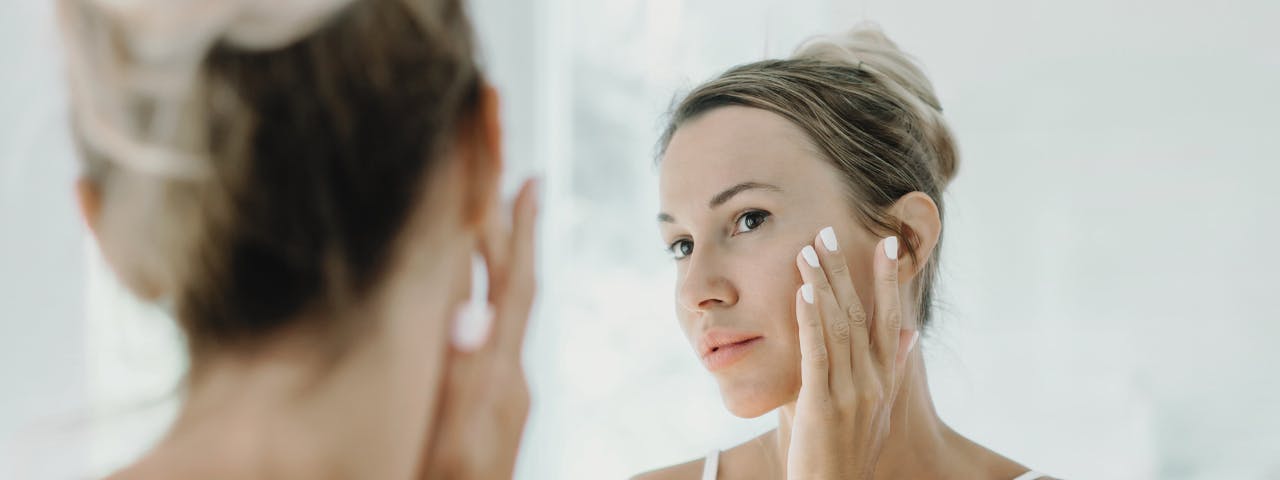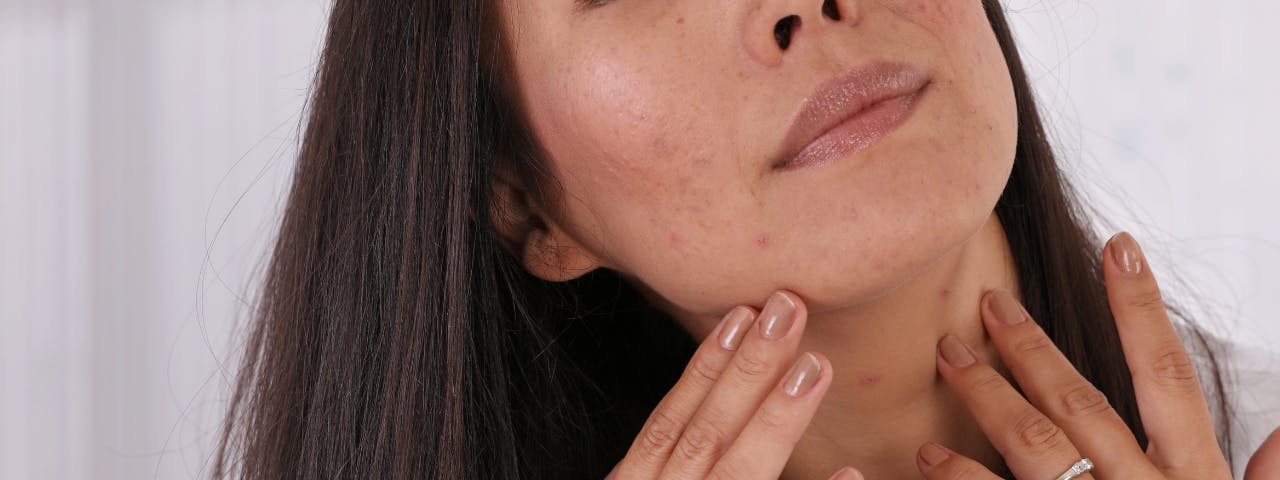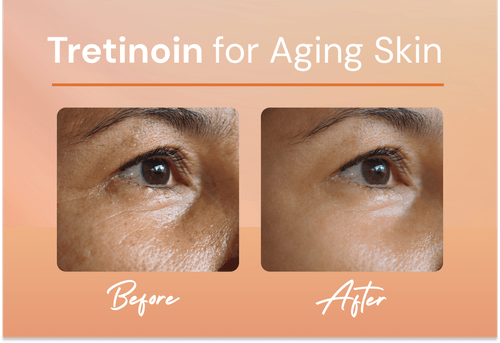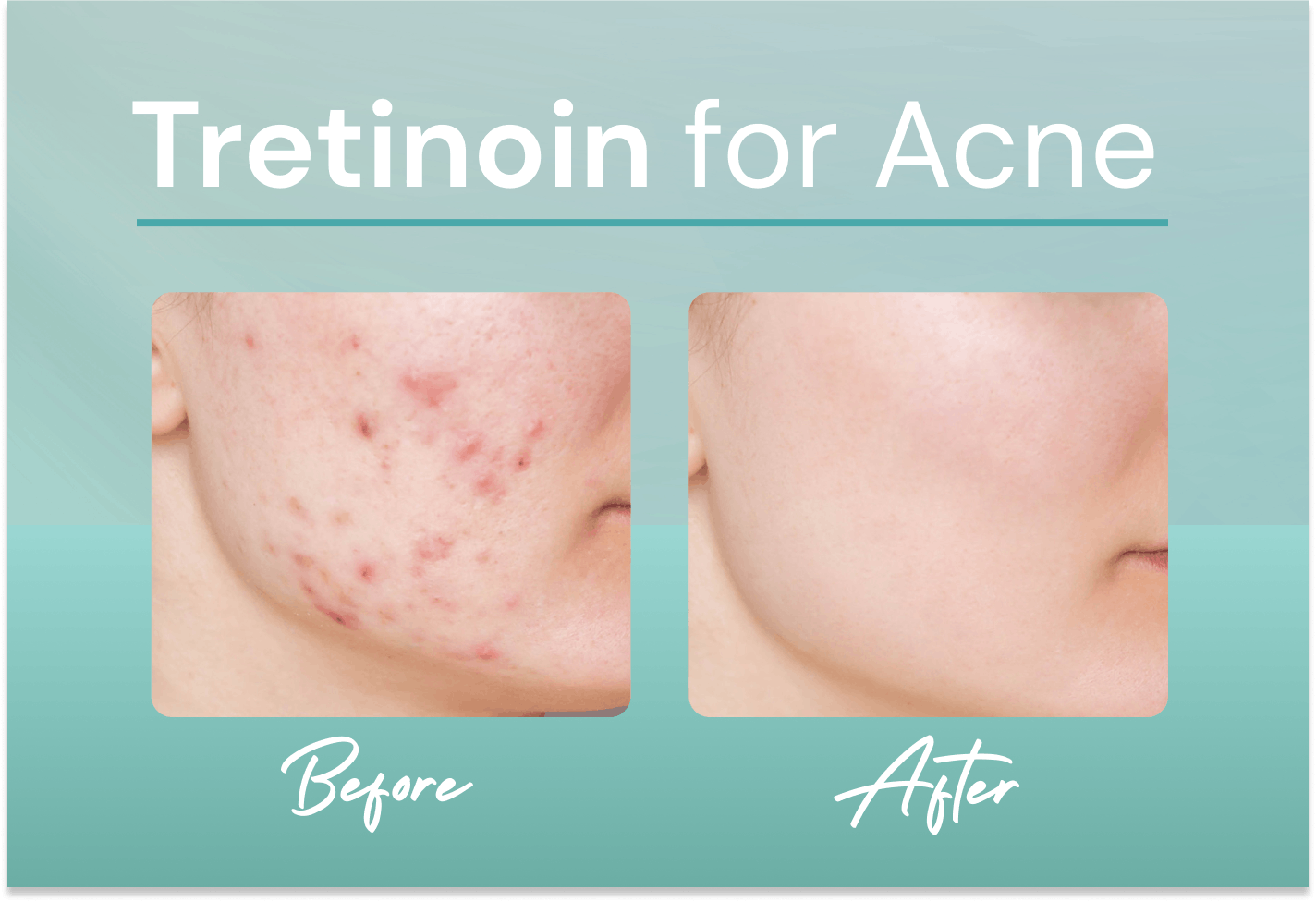Is my Acne a Symptom of Menopause?
We tend to associate acne with the angsty hormonal fluctuations of adolescence. But whenever the endocrine system is dealing with changes — like when women approach menopause — pimples can rear their obnoxious heads.
During menopause, women experience a sharp drop in the production of the hormones estrogen and progesterone. But the secretion of androgens, or male sex hormones such as testosterone, goes through a more gradual decline. New hair in areas associated with male hair growth, hair thinning, and menopausal acne can result.
While acne is less common in women above age 40, it’s appearance can be as frustrating as it is for high schoolers. Here’s how you can tell whether your breakouts are signaling the menopausal transition, and what you can do about it:
Where does menopausal acne appear?
Menopausal acne and adult acne tend to have different presentations and severity. Adult acne may reappear after adolescent flare-ups, persist from youth throughout adult life, or form for the first time. Menopausal acne is more common on the face, frequently on the chin and jaw.
Acne appearing during menopause is more common on the upper body. But it can still be facial, commonly presenting with deep, tender red bumps around the mouth or large blackheads. Skin damage due to sun exposure is also associated with menopausal acne.
Increased oil on the skin is a more common symptom of adult acne — leading to the classic whitehead appearance of pimples — rather than the hormonal skin disruptions experienced by women in menopause.
How to treat acne in menopause
Menopausal acne can be persistent, but it’s often something women have dealt with in the past. However, flare-ups from acne in adulthood don’t respond as well to over the counter acne treatments geared toward the oil-rich skin of adolescents.
Spironolactone is an effective treatment. It blocks androgen receptors, allowing the drug to target the hormonal cause of menopausal acne, especially when breakouts appear alongside abnormal hair growth or thinning.
Topical tretinoin or Retin-A can also be prescribed by a board-certified dermatologist as either a short-term or long-term treatment option for clearing up acne. Retinoids help stimulate cell turnover on your skin, opening pores to release bacteria that may be causing acne. Topical tretinoin has anti-inflammatory properties that help clear acne pustules, and it can assist in regulating skin oil production, which may prevent future breakouts.
There are additional benefits to using Topical tretinoin. It has demonstrated to have a positive impact on the visible signs of aging, reducing the appearance of wrinkles and acne scarring.
Another medication meant for cystic acne, Isotretinoin, can improve relapsing or persistent acne in mature women. However, as effective as it can be in some cases, it can also have severe side effects.
You can prevent menopausal acne from worsening by being gentle with your skin and reducing your sun exposure. Try to avoid using irritating, skin-drying astringents, popping breakouts or frequently washing your face (which can cause additional irritation).
Finding expert advice
If you’re concerned about new-onset or recurring acne during menopause, one of Cortina’s board-certified dermatologists can determine whether you’re experiencing symptoms of perimenopause, menopause or a run-of-the-mill adult acne flare-up.
Go to cortinahealth.com to access affordable, personalized care anytime, anywhere.



